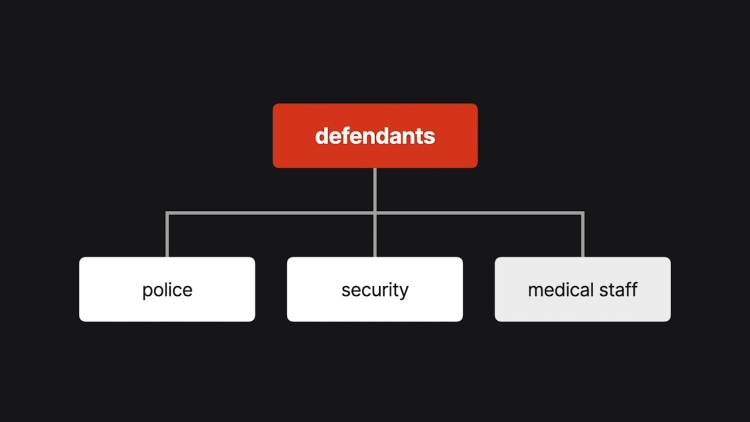Sanford v. Commonwealth of Virginia
United States District Court for the Eastern District of Virginia
687 F. Supp. 2d 591 (2009)

- Written by Carolyn Strutton, JD
Facts
John Sanford was a mentally and physically disabled individual who was admitted to the Medical College of Virginia Main Hospital (MCV) for surgery. Following the surgery, Sanford became delirious as a result of medications that had been administered to him. MCV nurses summoned police officers and a security guard to restrain Sanford. The security guard and one of the police officers handcuffed Sanford and held him prone and facedown on the floor. During this period, a nurse injected Sanford with a sedative. Additional officers responded to the scene, and Sanford was restrained in the same position for 30 minutes. When Sanford was finally turned over, he was dead. Sanford’s estate (plaintiffs) filed suit. One attorney represented multiple MCV employees (defendants), including nurses, nurse supervisors, security staff, and doctors. Another attorney represented multiple police officers (defendants), including the first responding officer, supervising officers, and officers who arrived at the scene later. During initial testimony, conflicting information and various theories of culpability emerged among both the group of MCV employee defendants and among the group of police officer defendants. The plaintiffs filed a motion to disqualify both the MCV employee defendants’ attorney and the police officer defendants’ attorney for conflicts of interest.
Rule of Law
Issue
Holding and Reasoning (Payne, J.)
What to do next…
Here's why 907,000 law students have relied on our case briefs:
- Written by law professors and practitioners, not other law students. 47,100 briefs, keyed to 996 casebooks. Top-notch customer support.
- The right amount of information, includes the facts, issues, rule of law, holding and reasoning, and any concurrences and dissents.
- Access in your classes, works on your mobile and tablet. Massive library of related video lessons and high quality multiple-choice questions.
- Easy to use, uniform format for every case brief. Written in plain English, not in legalese. Our briefs summarize and simplify; they don’t just repeat the court’s language.





